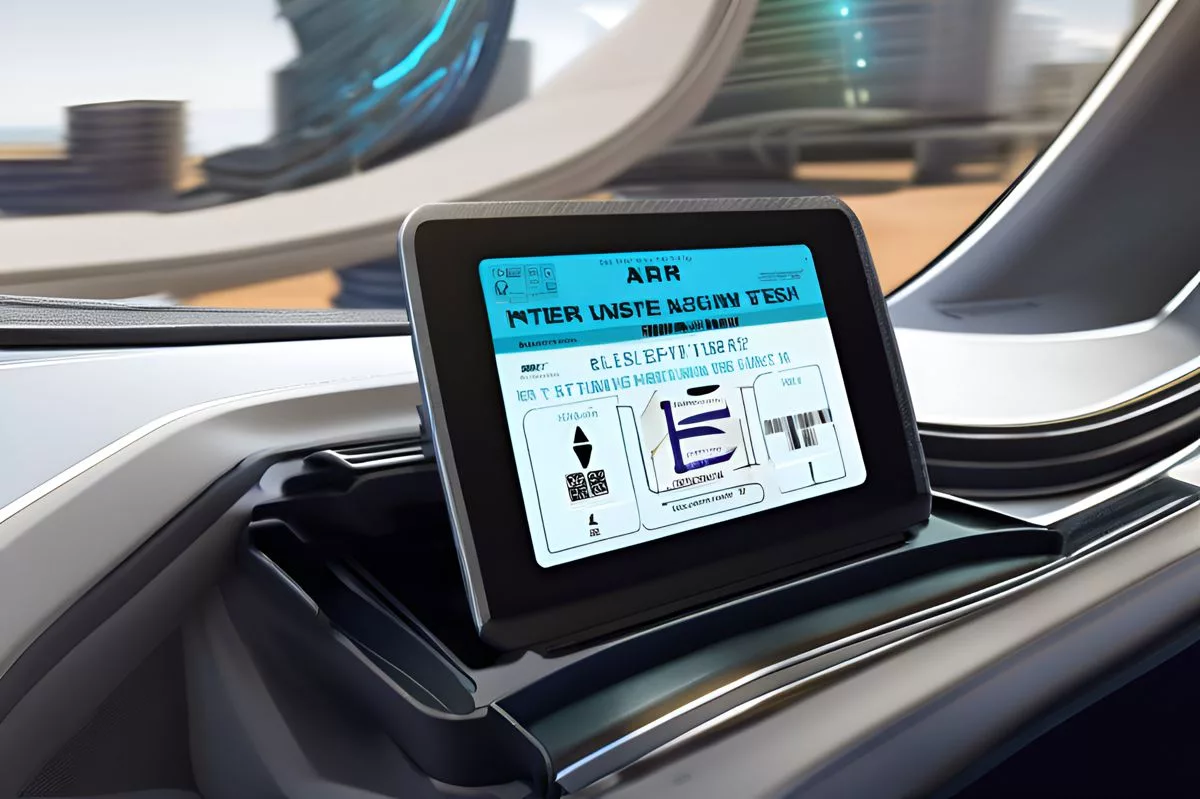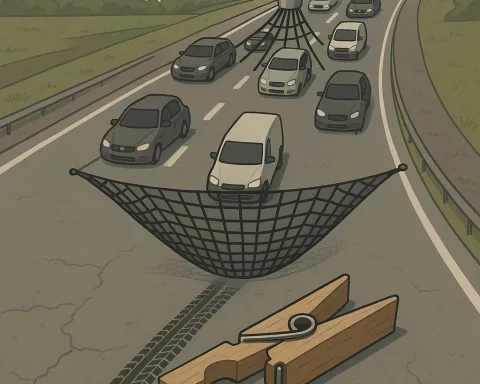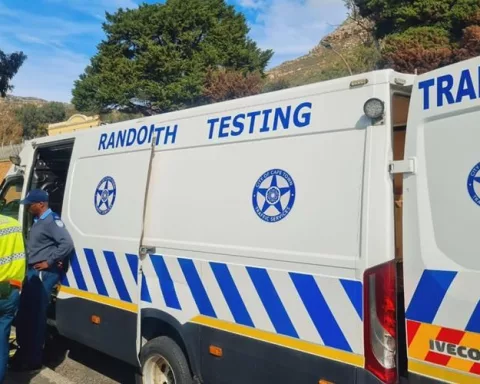South Africa is taking a big leap into the future with digital driving tests, set to start a pilot phase in 2025. This exciting change will use smart technologies like geofencing and biometric ID to make driving tests safer and fairer. By shifting from paper to digital, the country aims to cut down on cheating and make the process quicker and easier for everyone. As South Africa embraces this new way of testing, it hopes to create a safer driving culture and inspire other nations to follow suit. This move is all about progress, bringing technology closer to the lives of South Africans!
What are digital driving tests in South Africa?
Digital driving tests in South Africa aim to modernize vehicle assessments by utilizing technologies like geofencing and biometric identification. This initiative, set for a pilot phase in 2025, enhances road safety, reduces fraud, and streamlines licensing processes, aligning with global digitalization trends.
In a world where technology deeply integrates into daily routines, South Africa approaches a pivotal shift in its vehicle regulation framework. The nation is gearing up to introduce digital driving tests, marking a significant step forward in enhancing road safety and streamlining bureaucratic processes. Barbara Creecy, the Minister of Transport, announced that the Road Traffic Management Corporation (RTMC) plans to launch a pilot phase of these digital tests, intending a full-scale rollout by 2025. This initiative targets not only the modernization of the testing process but also the reduction of fraudulent driver’s licenses, a persistent problem in the country.
Embracing Technological Advancements
The introduction of digital driving tests in South Africa signifies a major advancement towards modernizing vehicular assessments. By employing sophisticated technologies like geofencing and biometric identification, the RTMC aims to safeguard the integrity of the testing process. Geofencing creates virtual boundaries around testing sites, ensuring applicants remain within authorized zones. Biometric identification verifies the identities of test participants, thus reducing the risk of impersonation—a frequent issue in conventional testing systems. This technological shift aligns with global trends, as countries such as the United Kingdom and parts of the European Union have already begun integrating digital solutions into their vehicle testing systems.
To support this digital transition, the South African government has been deploying Smart Enrolment Units (SEUs) nationwide. These advanced units collaborate with databases from the Department of Home Affairs and the South African Police Service, offering real-time verification to streamline application processes at driving license testing centers. SEUs can also identify individuals with outstanding enforcement orders or those living illegally in the country, thus enhancing legal compliance and security. The integration of technology into public service infrastructure signifies a deliberate move towards improving government efficiency and accountability.
Transforming the Testing Process
Though Minister Creecy did not fully detail the mechanics of digital driving tests, insights can be drawn from European models like BJSS, which administers over two million digital driving tests annually. Digital driving tests replace the cumbersome paper-based procedures traditionally used in driving examinations. Instead, activities occur on digital tablets, enabling examiners to record scores and observations in real-time. This streamlined approach not only reduces administrative errors but also speeds up result processing.
This digital drive aligns with South Africa’s rollout of computerized learner’s license tests (CCLTs), marking another significant stride towards updating the licensing process. By transitioning to computerized learner’s tests, the country can provide a more standardized and fair assessment platform for all aspiring drivers, minimizing discrepancies and biases found in manual testing.
The planned rollout of digital driving tests reflects broader societal shifts towards digitalization, resonating with the historical waves of innovation emblematic of the Information Age. Just as the Industrial Revolution transformed production and labor, the Digital Revolution reshapes how societies manage information, efficiency, and governance. South Africa’s commitment to digital driving tests reflects its resolve to partake in this global transformation, aspiring to advance public service delivery and improve road safety.
Overcoming Challenges and Embracing Change
Historically, South Africa has encountered obstacles in adopting technological advancements, often due to infrastructural and socio-economic challenges. However, the proposal to implement digital driving tests signifies a groundbreaking change. By investing in technology that fosters transparency and efficiency, South Africa addresses long-standing issues of corruption and inefficiency that have plagued its public service sectors.
Beyond technical advantages, the introduction of digital driving tests offers a chance to cultivate a new culture of accountability and compliance among South African drivers. Enhanced verification processes deter potential fraudsters, fostering a driving environment that emphasizes safety and competence. This shift is more than administrative; it reflects an evolving mindset that values ethical behavior alongside technological proficiency.
In the broader context of global movements towards smart city initiatives and digital governance, South Africa’s exploration of digital driving tests is both timely and crucial. The effects extend beyond the transportation sector, hinting at wider possibilities for digital transformation in areas like healthcare, education, and public safety. As South Africa navigates the complexities of implementing such technologies, it sets a precedent for other African nations considering similar innovations.
Despite the potential challenges on the road to digital driving tests—ranging from technological glitches to resistance from traditionalists—the vision of an efficient, fair, and secure testing process presents a strong incentive for persistence. As South Africa embarks on this ambitious journey, it encourages its citizens to embrace change, adapt to new methodologies, and prepare for a future where technology is an ally in the quest for progress.
FAQ on Digital Driving Tests in South Africa
What are digital driving tests in South Africa?
Digital driving tests in South Africa are a planned modernization of vehicle assessments that will use technologies like geofencing and biometric identification. Set to begin a pilot phase in 2025, this initiative aims to enhance road safety, reduce fraud, and streamline the licensing process, aligning with global trends in digitalization.
How will digital driving tests improve safety?
The introduction of digital driving tests will use geofencing to create virtual boundaries around testing sites, ensuring applicants stay within authorized areas. Additionally, biometric identification will verify the identities of test participants, significantly reducing the risk of impersonation and improving the overall integrity of the testing process.
When will the pilot phase of digital driving tests start?
The pilot phase for digital driving tests in South Africa is scheduled to begin in 2025, with the intention of a full-scale rollout following the pilot’s evaluation and adjustments based on feedback and results.
What technologies are being used in the digital driving tests?
The digital driving tests will utilize sophisticated technologies such as geofencing to maintain authorized testing zones and biometric identification to confirm the identities of test takers. This combination aims to create a fairer, more efficient testing environment.
How does this initiative address issues of fraud in the licensing process?
By employing technologies like biometric identification and geofencing, the digital driving tests aim to significantly reduce fraud, such as the issuance of fraudulent driver’s licenses. This marks a critical step in combating corruption and inefficiencies that have historically plagued the public service sectors in South Africa.
What other initiatives accompany the introduction of digital driving tests?
The introduction of digital driving tests coincides with the rollout of computerized learner’s license tests (CCLTs), which aim to provide a more standardized and fair assessment for aspiring drivers. Together, these initiatives represent a broader commitment to modernizing South Africa’s vehicle regulation framework and improving public service delivery.












